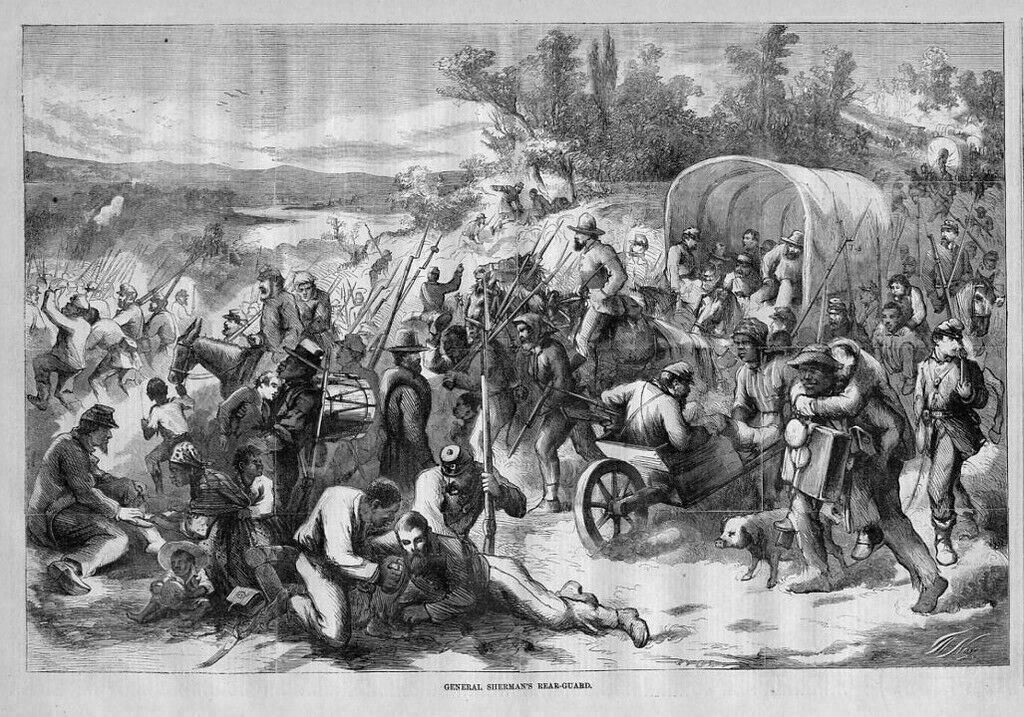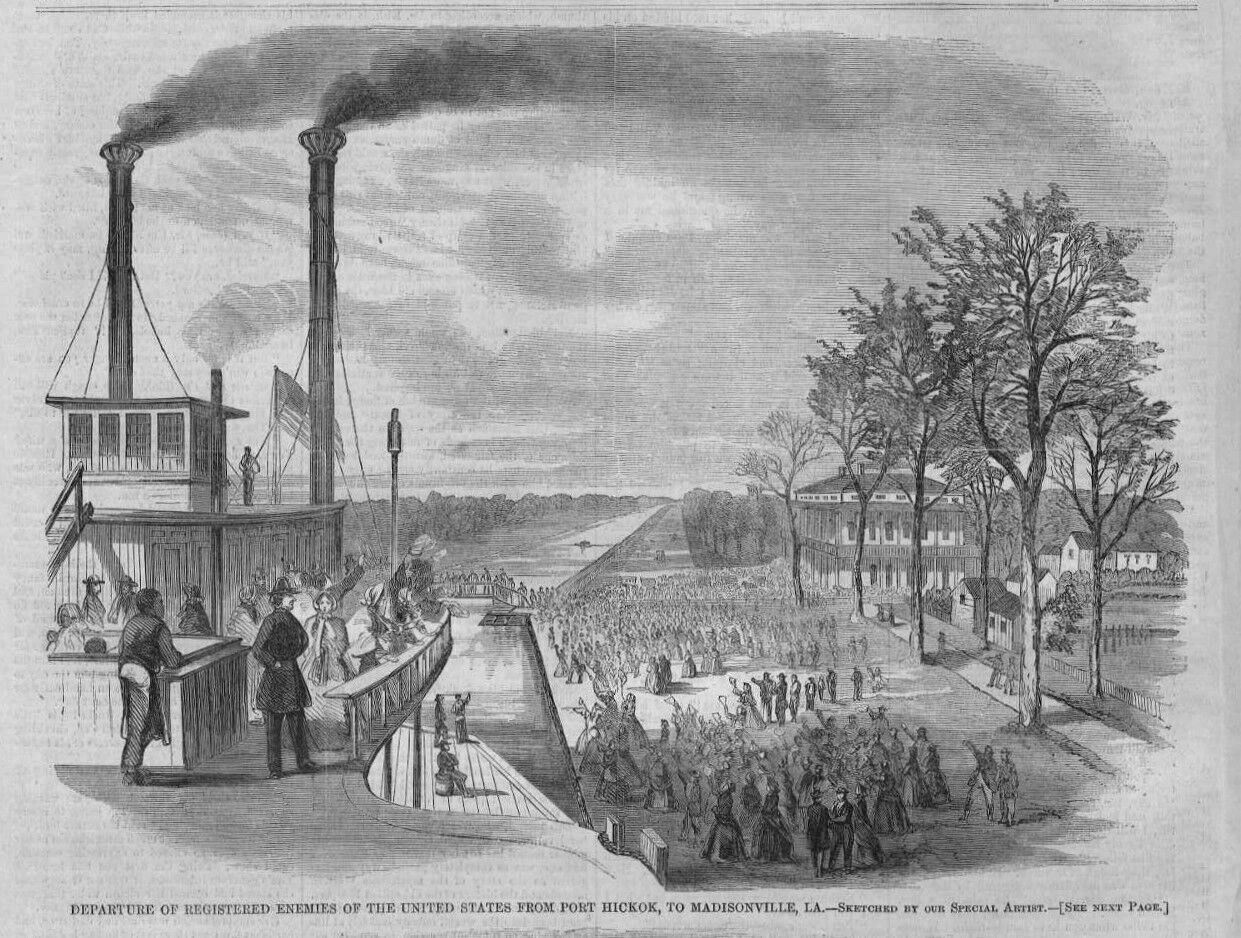-40%
Civil War US Navy Steamship Constitution Leaving Boston Southern Expedition
$ 34.32
- Description
- Size Guide
Description
Antique Print DescriptionThis is an original engraved print titled,
"The Steamship 'Constitution' Leaving Boston with Troops on General Butler's Southern Expedition."
It was published in a Civil War era Harper's Weekly, 7 December 1861. A selection from the descriptive text is below. You may be interested in
our other listings
on eBay.
Title:
The Steamship 'Constitution' Leaving Boston with Troops on General Butler's Southern Expedition.
Publisher:
Harper's Weekly
Medium Used:
Wood Engraving
Year:
December 7, 1861
Size:
Full Dated Page - Measuring 11" x 16"
Condition:
Excellent
Description:
Original Authentic Civil War Era Antique Print
From the Harper's Weekly..." A correspondent of the Herald thus described the arrival of the Constitution at Boston :"
The expected steamer Constitution arrived at half past ten this morning, and as she rounded up to the end of Long Wharf an immense concourse of people gazed in admiration at her perfect model and the beauty of her lines. She reached this port last night, but anchored off the lower light until morning. She made the trip from New York in twenty-nine hours and ten minutes, and so thoroughly did she work that her engines were never stopped from the moment she started until she anchored at Boston.
This, in a new ship, is almost unprecedented. She is the largest ship ever built on this continent, and the largest wooden steamer in the world; but she hardly rolled at all, although it blew a perfect gale during the whole of her passage. It is stated that her capacities will be severely tested in carrying three thousand soldiers, but I am assured by Mr. Culver, who was the assistant superintendent in building her, that she can carry that number with ease and comfort. She is of 3500 tons burden..."
Frequently Asked Questions
Are those odd lines on the image a defect in the print?
Antique prints often have faint vertical or horizontal lines visible. Rather than a defect, they are a fascinating historical artifact of the popular engraving process employed by newspapers at the time of the Civil War? During the war, newspaper publishers needed a method where they could get the illustrations produced by newspaper artists in the battlefield to the American public as quickly as possible.
To do this, the illustration was divided into sections usually two inches square. Double page prints were divided into as many as 40 sections. The section was traced onto a wood block. Engravers cut into the wood with various tools creating a mirror image of their section of the illustration. The blocks were then screwed together, recreating the original illustration. This would then be inked and stamped onto the newsprint. The lines on the image above are a result of where the blocks of wood were joined together.
Will my antique print deteriorate?
Before 1870, newspapers were not made from wood pulp as they are today. Instead, they were printed on a sturdy paper made by pulping linen rags. These rags came from clothing and ship sails. Because this kind of paper contains very little acid, your antique print could easily retain its appearance for many years into the future, if handled properly.
Why do people purchase antique prints and maps?
Antique prints and maps portray a moment in history. Because they represent a broad range of subjects, they are particularly useful when looking for a unique gift. Interior design has become a huge market for antique prints. From small framed botanicals to large Civil War maps, from large framed old city views to a collection of framed Harper's satirical cartoons, antique prints provide a world of design possibility. If properly framed, antique prints and maps can be preserved for many decades.
Is this item really authentic or just a reproduction?
You can have confidence that the item you purchase is guaranteed to be an original and not a modern day reproduction of any kind.
Can I return an item I purchase?
All purchases come with a 100% satisfaction guarantee.









